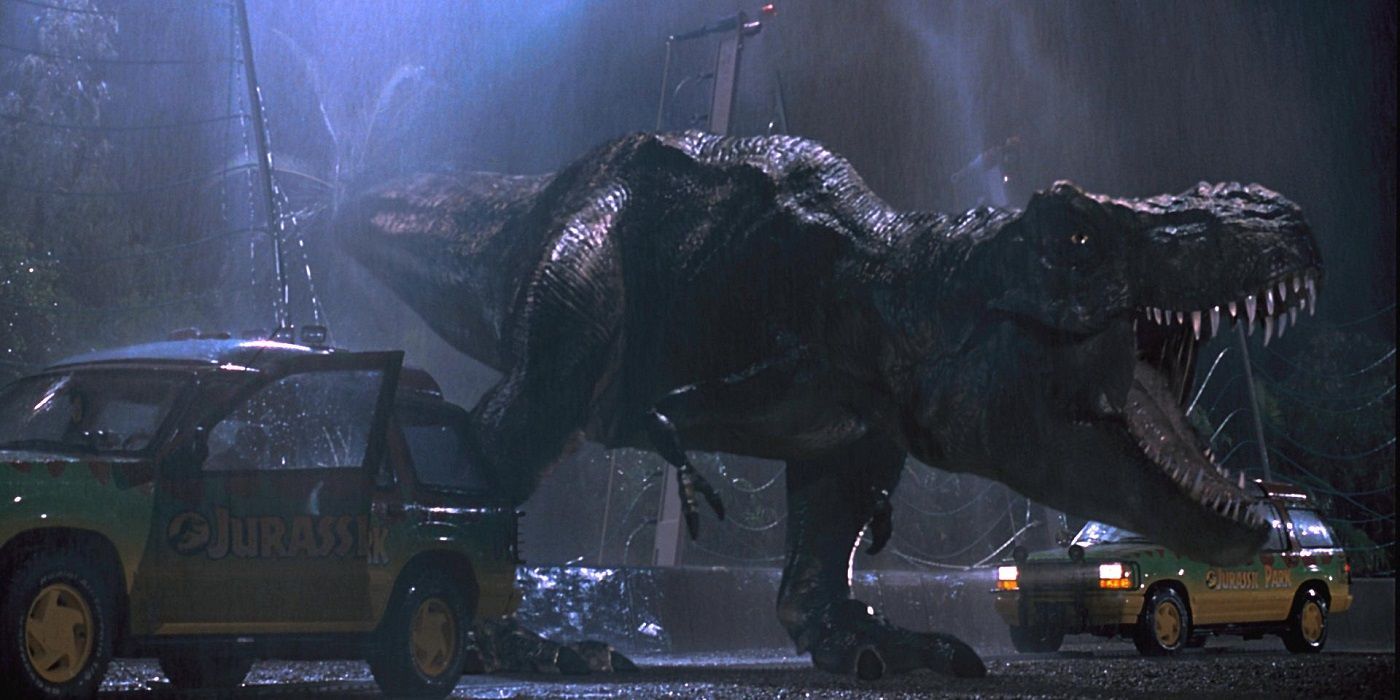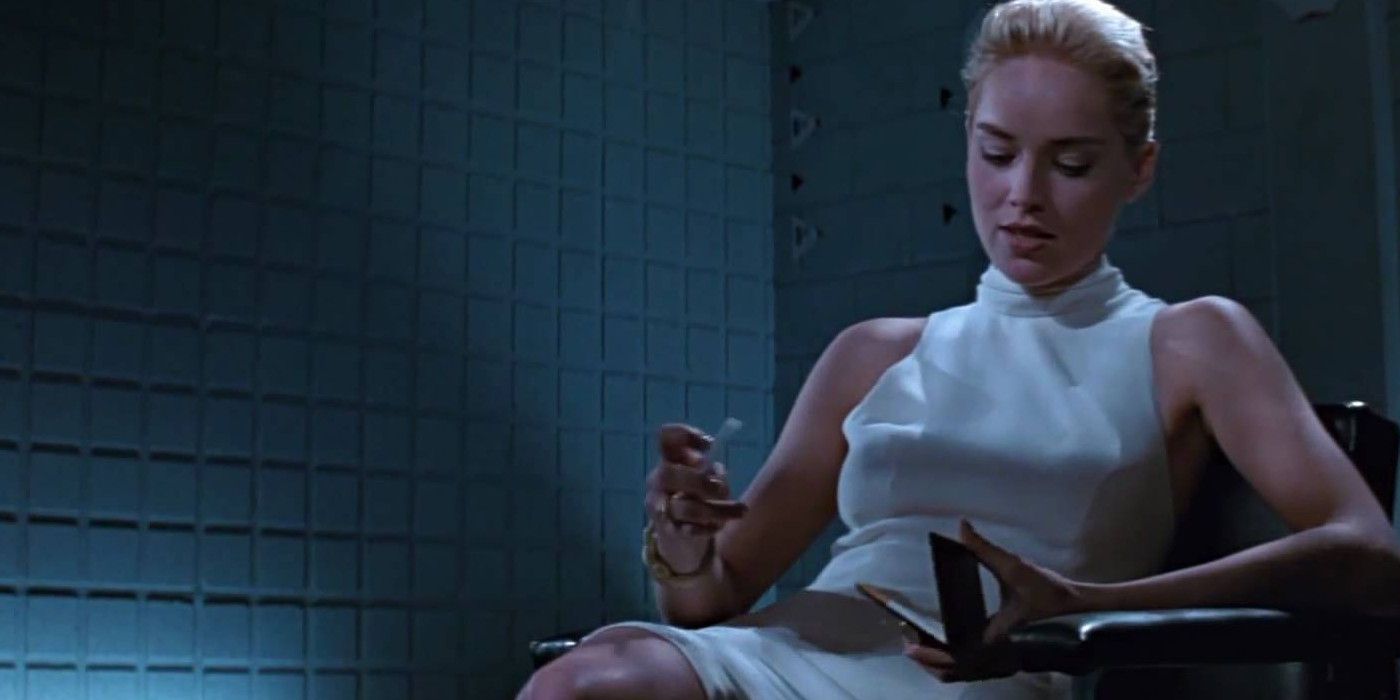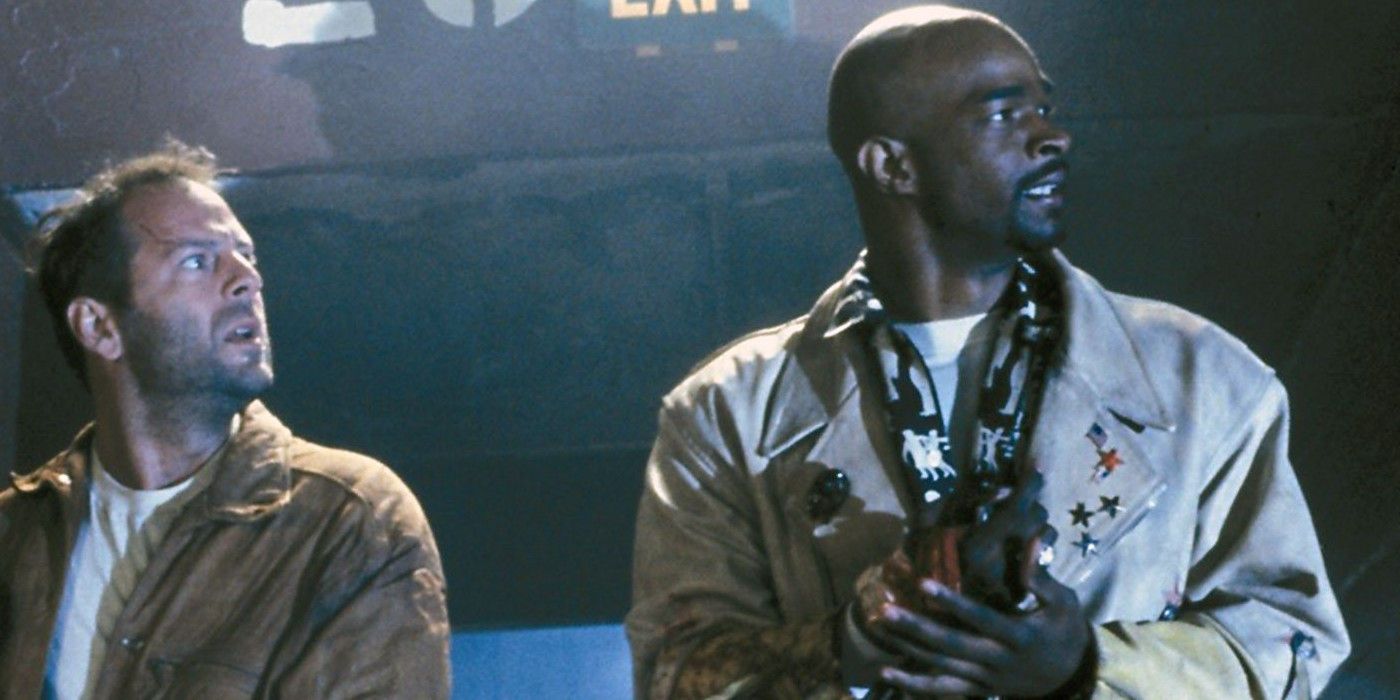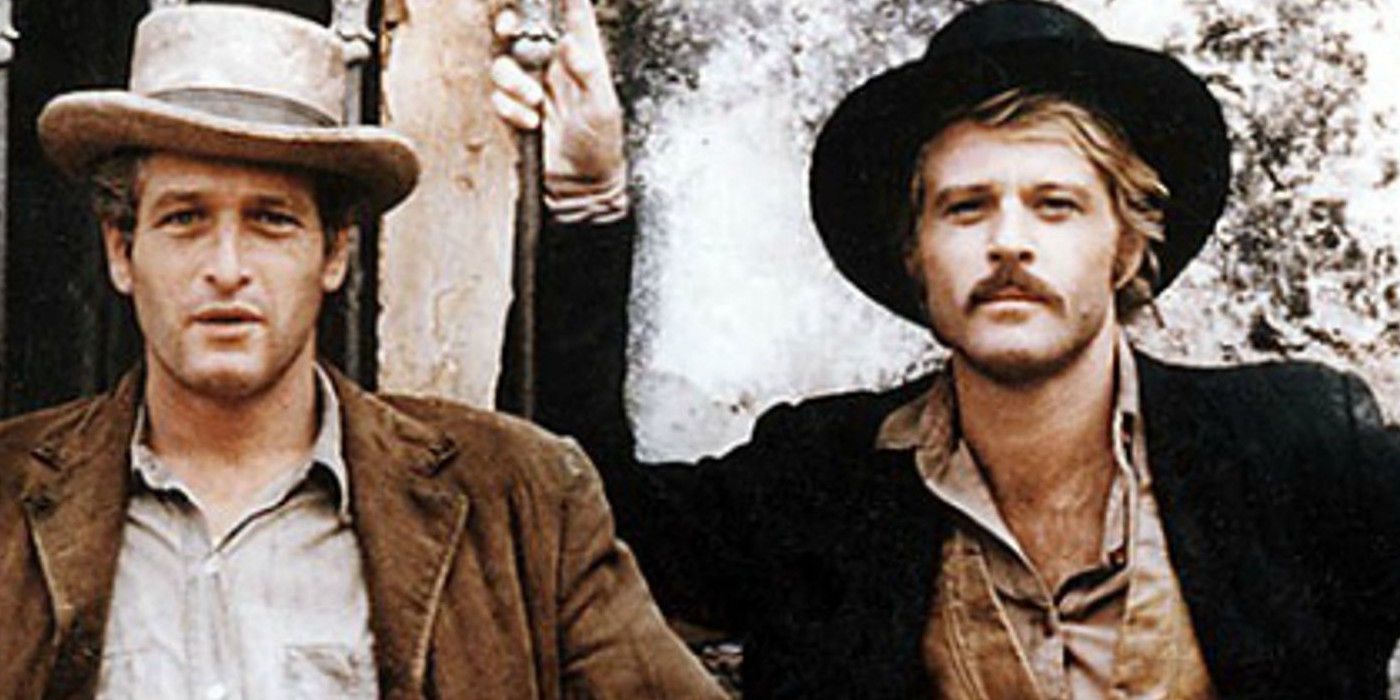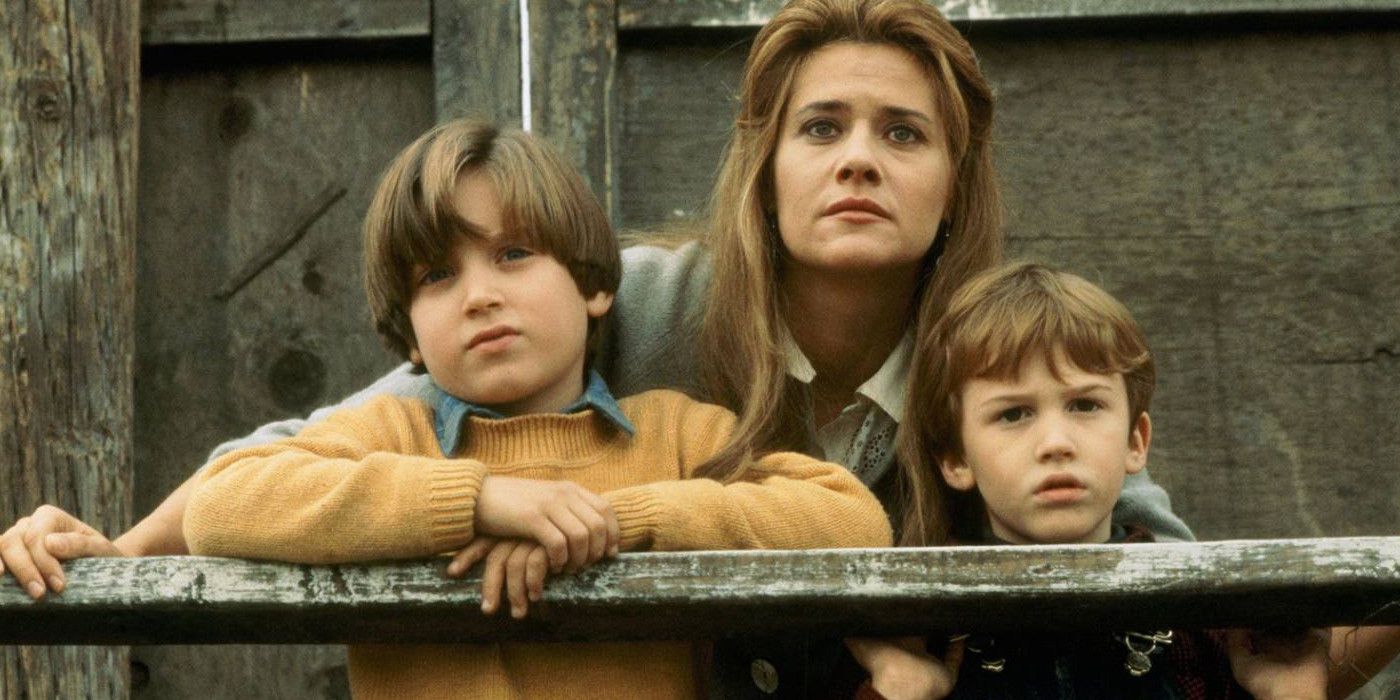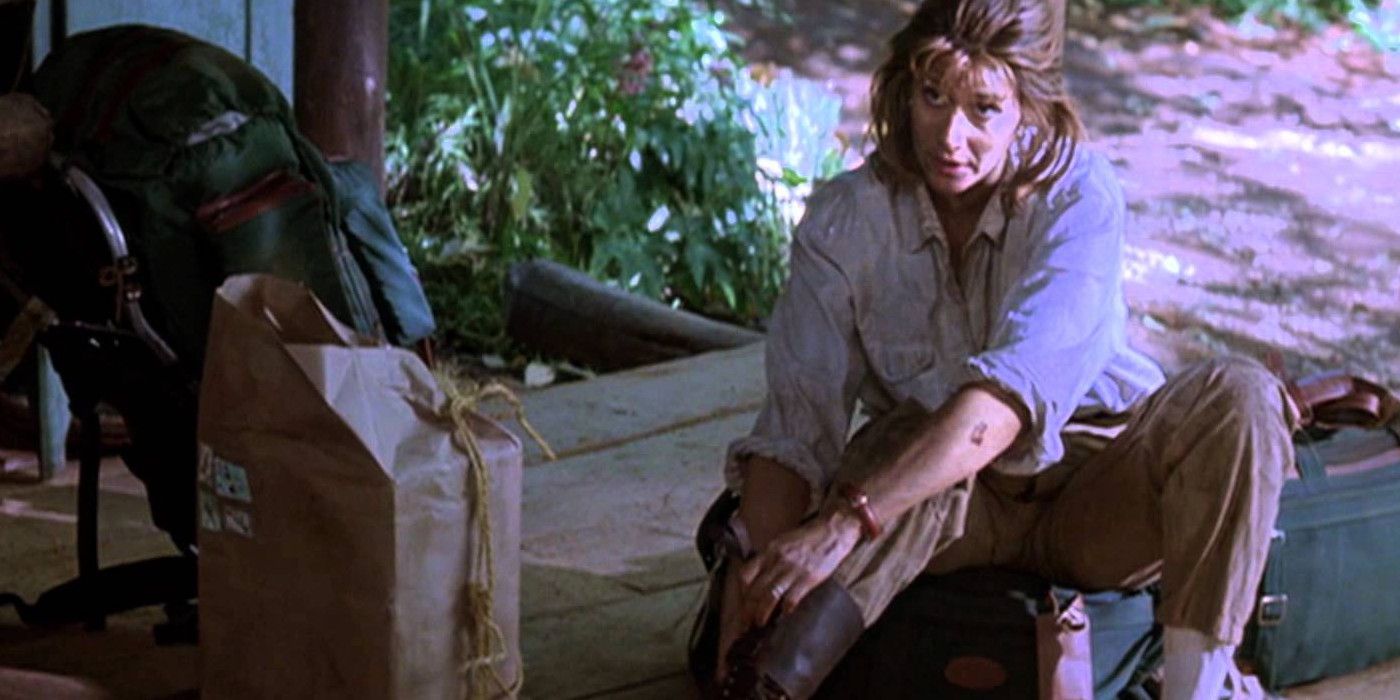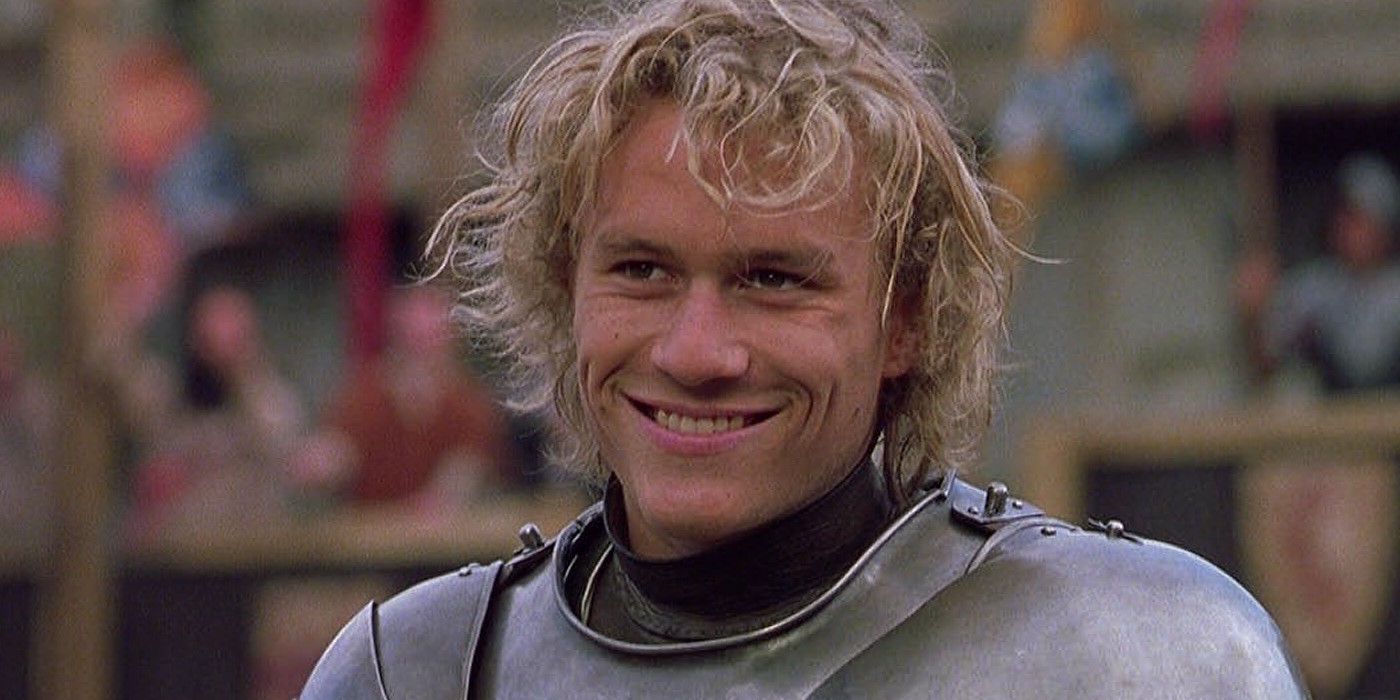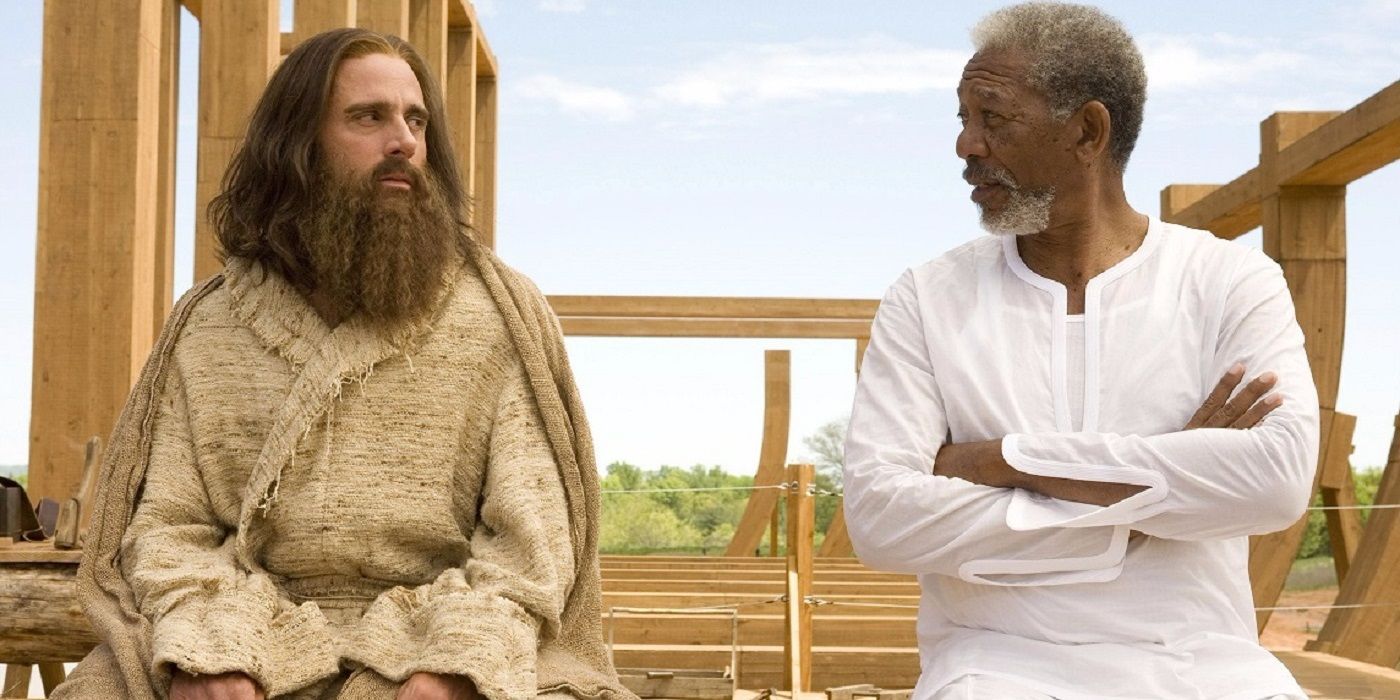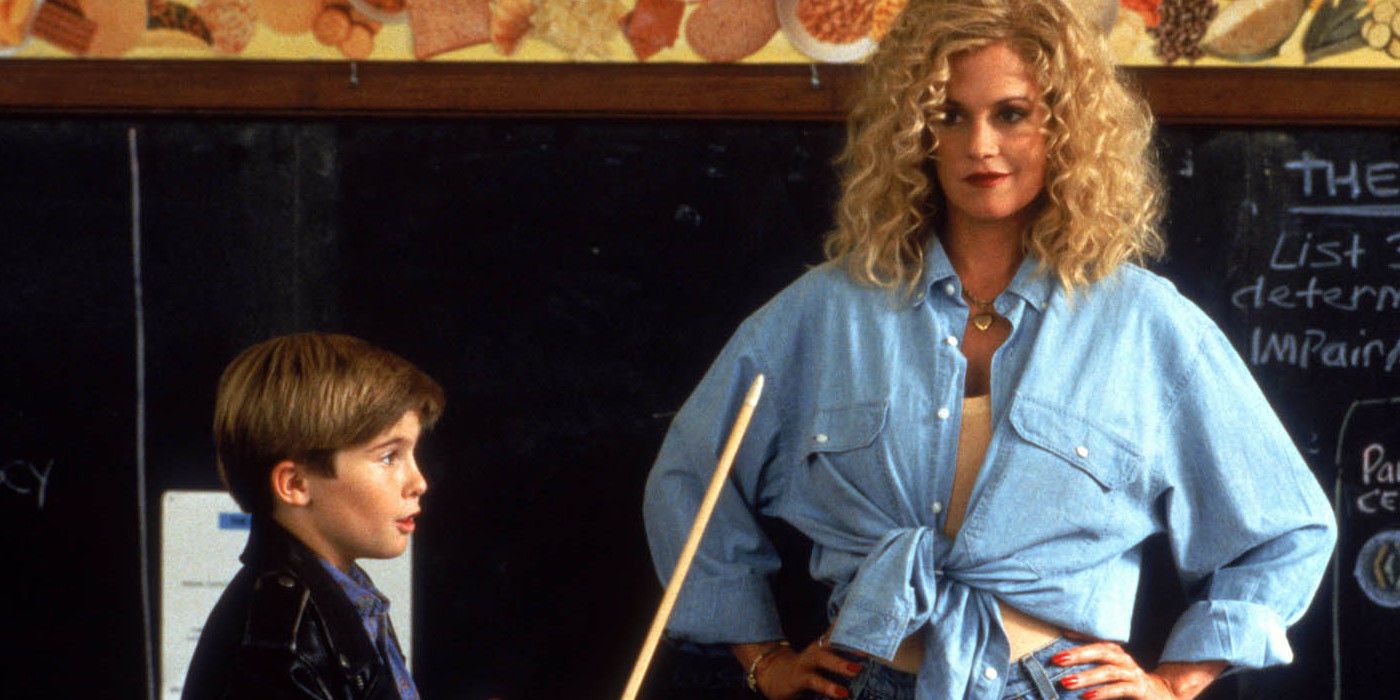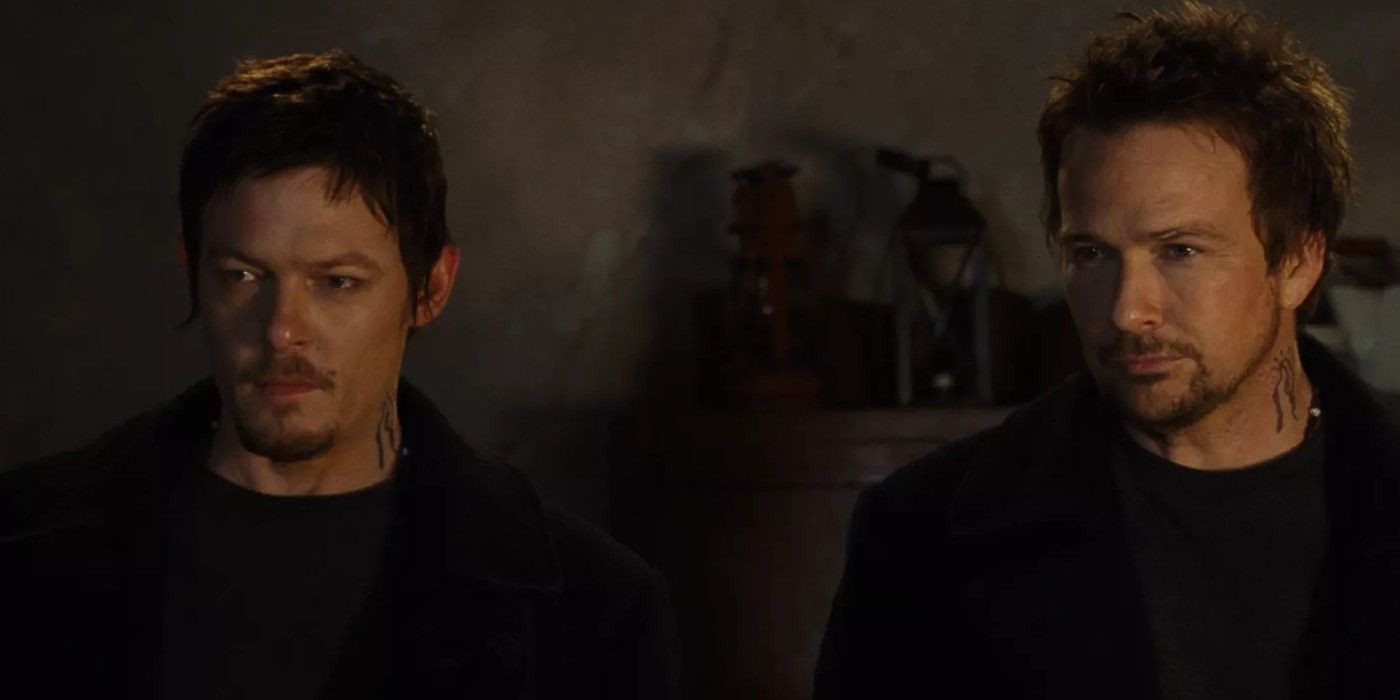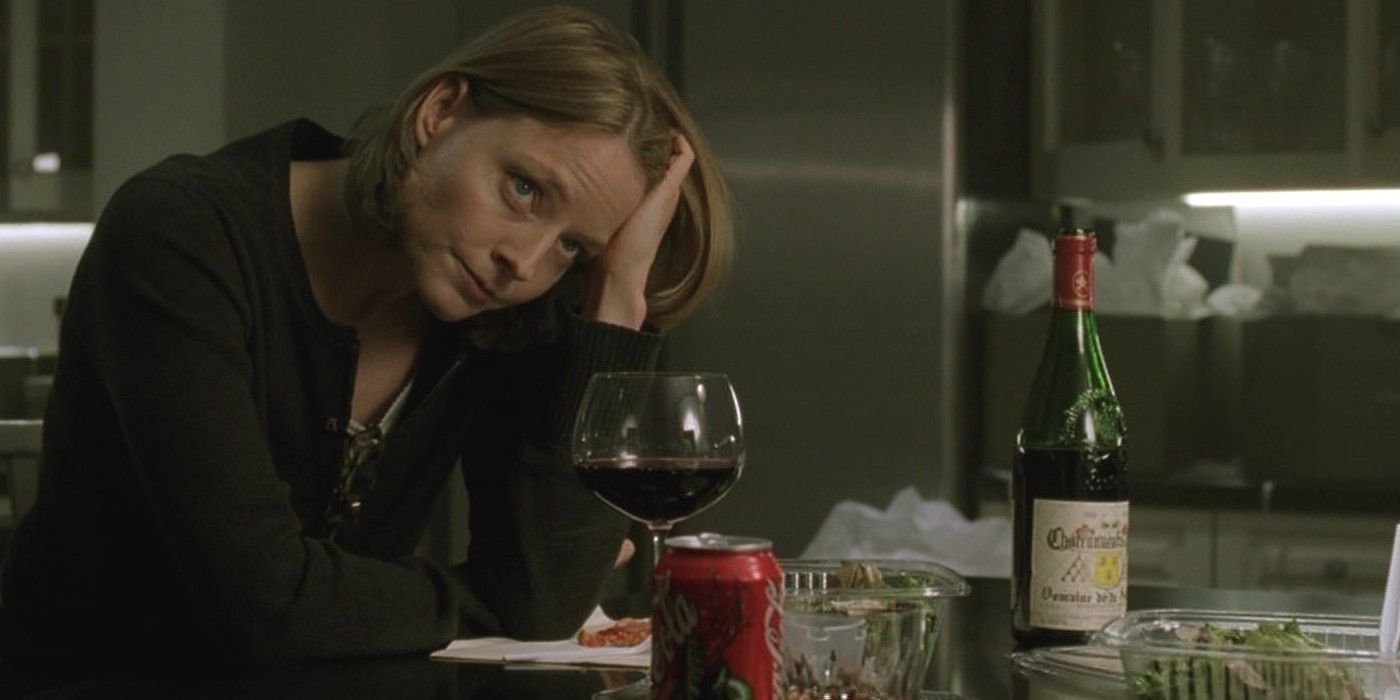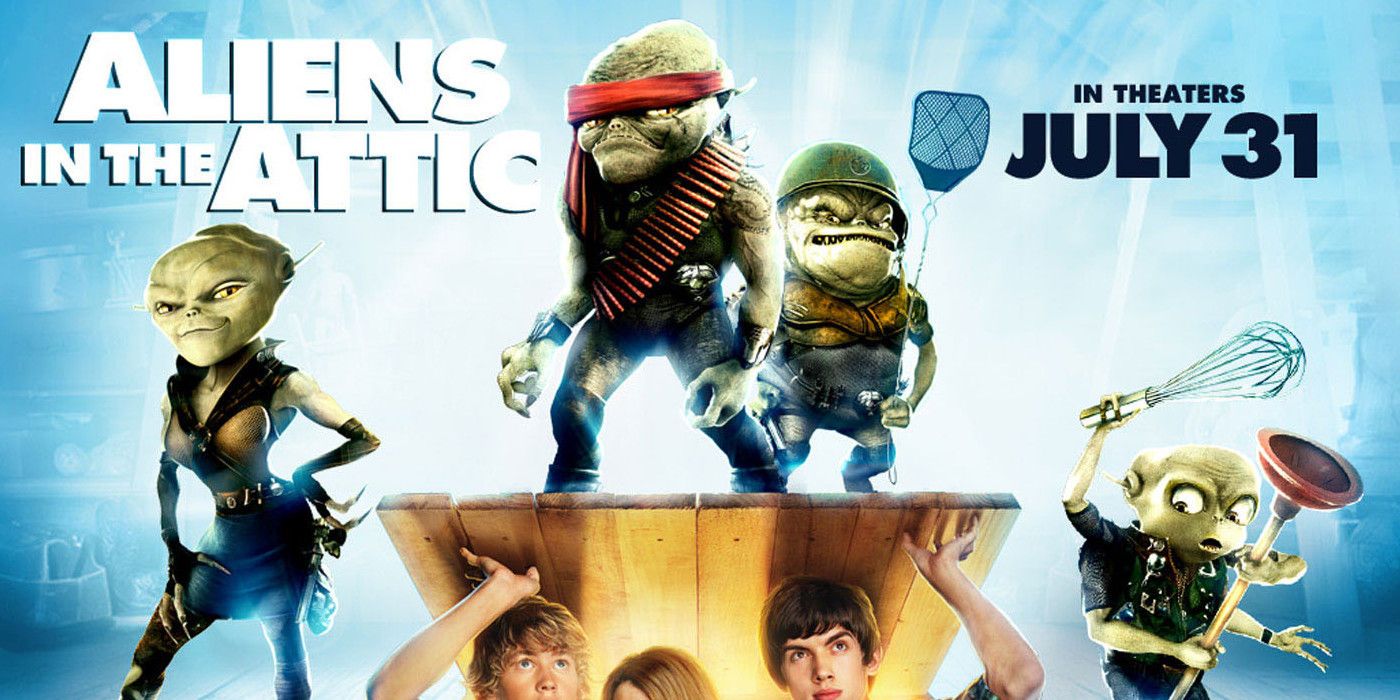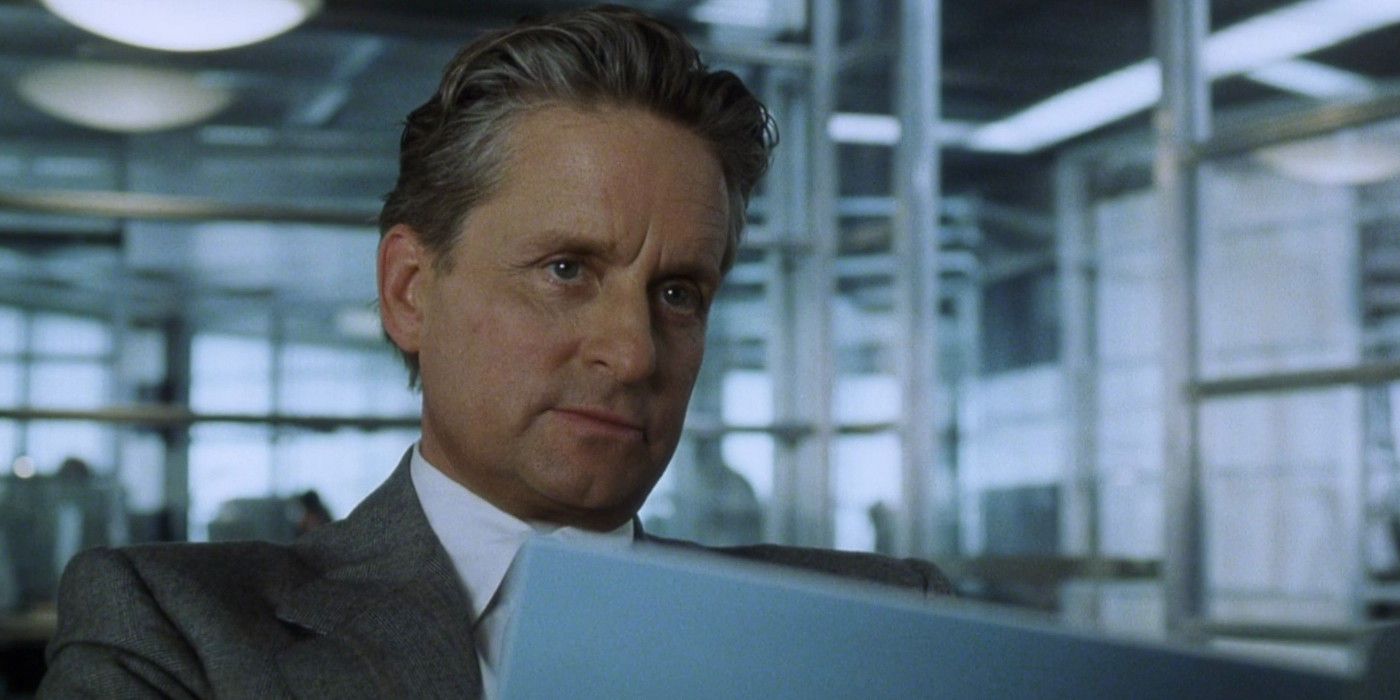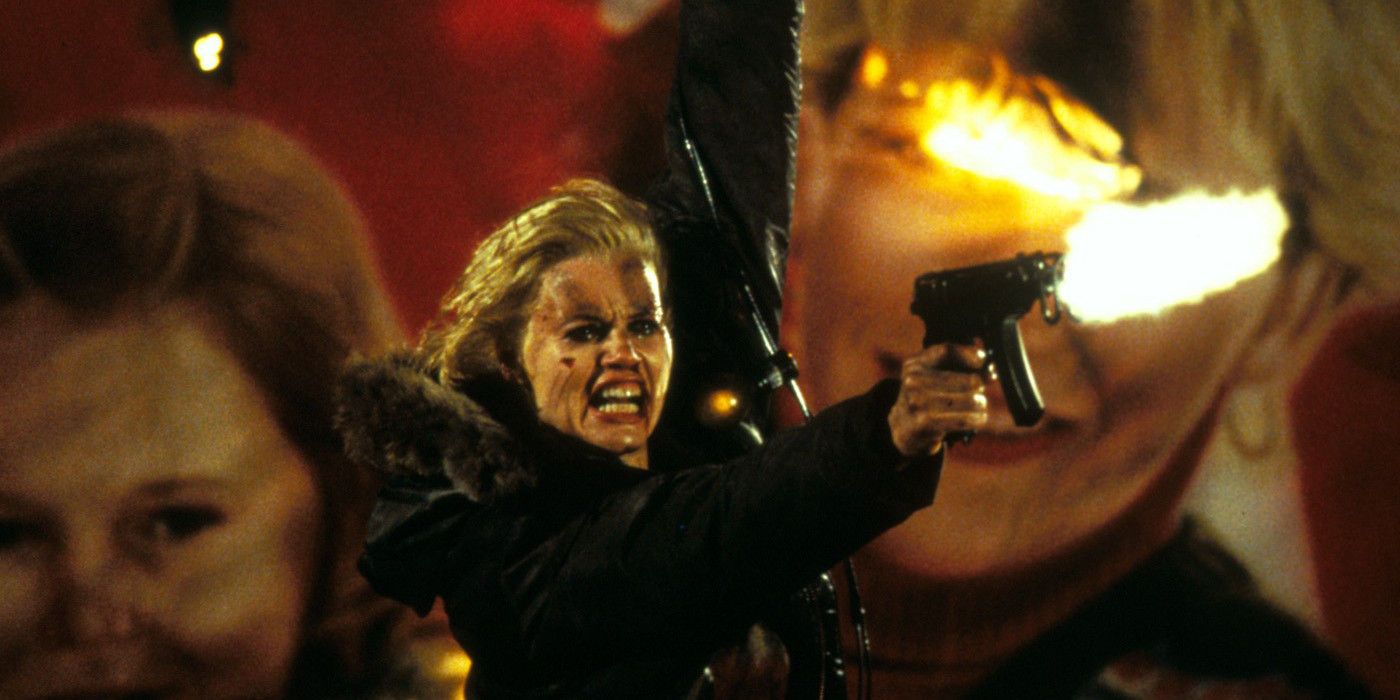Hollywood works like a fortified compound. A cabal of writers, producers, directors and actors have all the power, and like to keep things “in the family” so to speak. They don’t like to invite newcomers or outsiders to their decadent parties, which makes it all the more amazing when some newby scales the wall and ends up a megastar.
Writers have a particularly hard time breaking into the business, as the rest of the industry generally looks down on their craft and considers them as interchangeable as lightbulbs. Forget that the writer helps conceive an idea and provides the guide for an actor and a director to make a good film. In the mind of Hollywood, a writer is responsible for everything wrong with a movie, and gets no credit for anything good.
For those reasons, when a writer actually does break into the biz, it’s a rare event indeed. Even more miraculous, some writers manage to sell spec scripts (that is, original scripts they wrote without any pay or encouragement) for huge amounts of money, the sale becomes front page news. The scripts and writers listed here (in no particular order) got a taste of that glory. Some managed to parlay the moment into a thriving and lucrative career, while others drifted into obscurity as a flavor of the moment.
15. Jurassic Park
Author Michael Crichton was no stranger to Hollywood when he announced work on a story about geneticists cloning dinosaurs for a theme park. The author had already produced a string of bestselling novels, several of which had already become acclaimed films: Westworld continues to have a cult following (enough so that it is getting a remake on HBO) and the movie of The Andromeda Strain from director Robert Wise opened to strong box office and great reviews. Dinosaurs though, made tinseltown salivate.
Jurassic Park ignited a bidding war before the novel had even made it to publication. Several major studios vied for the rights, each with a director already in mind. Columbia favored Richard Donner, the action-comedy maestro behind Superman and Lethal Weapon. Warner Bros., sensing a comic book epic, tried to buy the rights for Tim Burton. Fox saw the property as a Gremlins-style creature feature, and tapped Joe Dante, while Universal had in mind a friend of Crichton’s: Steven Spielberg.
Author Crichton made an unheard of demand of $1.5 million plus gross points to sell the project, and Universal eventually won out. The result became one of the biggest movies in history, and a franchise that continues to thrive to this very day.
14. Basic Instinct
For better or worse, writer Joe Eszterhas became the screenwriter of the 90s for his potboiling, sexually-charged scripts for thrillers like Jagged Edge and the musical Flashdance. The writer also became known for his “bad boy” behavior. As a hard drinker and philanderer, he loved to spout incendiary comments in interviews while chain smoking the entire time.
Ezsterhas had ruffled feathers in 1989 when he slammed Creative Arts Agency head Mike Ovitz as a thug in an open letter to the trades. In the meantime, he’d had an idea for an erotic thriller. The writer started drinking, smoking and listening to the Rolling Stones as he banged out a draft in ten days. Esterhas called it Basic Instinct.
The script to Basic Instinct began to rapidly circulate around Hollywood, and when Esterhas made the brazen and unprecedented move of selling it via auction, the studio bosses came to bid. Producer Mario Kassar won out, paying a whopping $3 million for the script—a record breaking sum. Eventually, directed by Paul Verhoven and starring Michael Douglas and Sharon Stone, the film divided critics but became a runaway success at the box office. Esterhas would later repeat the feat, nabbing $3 million for another script of his, Showgirls. Perhaps it goes without saying that the latter didn’t quite fare as well.
13. The Last Boy Scout
Shane Black already had a successful screenwriting career by 1991. The writer had started as a typist when a friend, screenwriter Fred Dekker, enlisted Black’s help on a script. The result landed him a series of jobs as a ghost writer for the Hollywood studios. In 1987, he had a string of hits with The Monster Squad, Predator and Lethal Weapon. The latter became a box office giant, and spawned a mult-million dollar franchise.
Studio Warner Bros. immediately commissioned Black to write a script for what would become Lethal Weapon 2. Black toiled to finish the story, and the eventual screenplay met with praise for the writing and derision by the studio as too dark. Taking some time off, Black then decided to write a spec script, a dark action-thriller called The Last Boy Scout.
The Last Boy Scout earned raves from Hollywood readers and a bidding war began between the studios. Carolco Pictures, the production company behind Terminator 2: Judgment Day offered Black a reported $2.25 million for the rights. In a stunning turn, Black turned down the offer! Instead, he accepted a $1.75 million offer from Warner Bros., along with assurance that the film would be produced by the same producer of Lethal Weapon, Joel Silver. If Black’s record-setting paycheck made headlines, so did the movie: the production became one of the most notoriously difficult ever, and the film flopped at the box office.
12. Butch Cassidy & the Sundance Kid
William Goldman began his writing career in academia. He studied poetry and literature at Colombia University before getting his Masters degree. When he set out to start a career, he began by writing novels. His first, The Temple of Gold, became a bestseller, and helped him transition to drama as well. After writing several other successful novels and stage plays, he began work on Marathon Man. The novel, a thriller about Nazi war criminals living in South America, became a runaway hit, prompting Goldman to adapt the novel to a screenplay. The subsequent film also became a huge success, granting ailing actor Laurence Olivier a comeback and scoring an Oscar nomination.
Goldman continued with steady Hollywood work when he decided to develop something more personal. Having run across the story of western outlaw Butch Cassidy in the 1950s, Goldman began to write a fictionalized and romanticized account of Cassidy’s life with his friend the Sundance Kid. After considering writing the story as a novel, Goldman decided to write it as a spec script. Though it first circulated to Hollywood indifference, a quick rewrite garnered wild interest. One of the first major bidding wars between studios took place over Butch Cassidy and the Sundance Kid, with Fox eventually triumphing and scoring the rights. Goldman received an unheard of $400,000 for the rights, and the resulting film won the writer his first Academy Award.
11. Radio Flyer
David Evans had enjoyed minor Hollywood success by the late 1980s. Two scripts he’d penned, Terminal Entry and Open House had cleared the hurdles to production, and the writer decided to work on something more personal, and more family oriented.
Radio Flyer had begun as a personal endeavor for Evans while in film school. The script spun the tale of two young brothers who relocate to California after their parents’ divorce. The story focused on the perspective of the two children, and contained several fantasy sequences to add an air of magic to the proceedings. Evans counterbalanced the whimsy & imagination of childhood with the story of the boys’ abusive stepfather, and the brother’s plot to build a machine and escape.
Radio Flyer caused a firestorm in Hollywood, as insiders predicted the film could rank alongside ET: The Extra Terrestrial as a quintessential family drama. The bidding battle began, and Columbia eventually won out, paying Evans a shocking $1.25 million for the script and offering him the chance to direct as well, despite having no experience.
If the bidding war made Radio Flyer notorious, the production made it infamous. Evans filmed a week on the movie with Rosanna Arquette in the lead before producer Michael Douglas shut down the movie. Richard Donner, who had lobbied hard to direct the film, then came in and demanded rewrites of the script. A new production began with Donner at the helm, starring Lorraine Bracco, Elijah Wood and Joey Mazzello as the budget began to spiral. The resulting film bombed in theatres and met with attacks from critics who felt it trivialized child abuse. Evans went on to write The Sandlot to better reception, and the author recently published a novelized form of his original Radio Flyer script called The King of Pacoima.
10. Medicine Man
In the early 1990s, the environmental movement had hit a new stride in the popular consciousness, and movies & TV began to take notice. Ferngully became a hit family film, while movies like The Pelican Brief, 12 Monkeys and Once Upon a Forest all focused on environmental themes. Given the sudden popularity of the environmentalist genre, it was only a matter of time before a script would promise a prestige picture influenced by the movement.
Around the same time, screenwriter Tom Schulman hit a career high. After years toiling in telefilms, Schulman had a break out with Dead Poet’s Society, which netted him an Academy Award. After performing high-profile script doctor duties on Honey, I Shrunk the Kids, he scored another hit with the popular comedy What About Bob? When the writer announced he’d penned an environmentalist script, Hollywood rushed to buy it. Schulman ended up with a shocking $3 million paycheck as Disney rushed the movie into production.
Then a death blow hit the film: John McTiernan, known for his macho action-driven films, landed the director’s job. Though Disney lavished money on the production—including hiring stars Loraine Bracco and Sean Connery as the leads—the movie bombed in theatres, suffering from heavy competition from sleeper hit Wayne’s World.
9. A Knight’s Tale
Writer Brian Helgeland rode a wave of success into the early 2000s. He started in the low-budget horror circuit writing slasher titles like 976-EVIL and A Nightmare on Elm Street 4: The Dream Master. The latter proved a box office hit, and helped Helgeland land enough clout to score a job writing the detective noir film L.A. Confidential. The movie won rave reviews and also earned the writer an Academy Award.
Helgeland chose the time to transition into directing, beginning with Payback, which became a box office hit and netted respectable reviews. When Helgeland chose Chaucer’s The Canterbury Tales as the subject of his next writer/director outing, he raised more than a few eyebrows in Hollywood.
Eventually titled A Knight’s Tale, the script met with an enthusiastic reception around Hollywood. Given Helgeland’s recent successes and the positive buzz around the script, he managed to score $2.5 million for his writing fee. A Knight’s Tale opened in 2001 to positive reviews and decent box office, and featured Heath Ledger in an early starring role. It has since gained a greater cult following thanks to Ledger’s growing popularity, and its quirky, anachronistic (the peasants sing rock songs) take on knights, jousting and the Middle Ages.
8. Evan Almighty
God was everywhere in the mid-2000s, at least in the movies anyway. Bruce Almighty had become a comedy hit courtesy of Jim Carrey’s penchant for physical comedy, and The Passion of the Christ rocked the world by becoming a runaway hit despite charges of anti-Semitism and the entire movie being spoken in Aramaic! When writers Bobby Florsheim and Josh Stolberg put their spec script The Passion of the Ark up for sale, Hollywood had a divine premonition.
The Passion of the Ark focused on an everyman who has a vision of God warning him that he must build a new ark to protect humanity and the animal kingdom from a coming flood. Little known writers Stolberg and Florsheim nabbed a $2.5 million payday for the spec script, with Universal and Sony opting to co-produce the film.
Then Hollywood devils struck. Nervous about the subject matter and commercial viability, Universal fired Stolberg and Florsheim and decided to retool the story as a sequel to Bruce Almighty. Carrey declined to return, so the script was rewritten again and Steve Carrell cast in the lead. Reports state that nothing of the original Passion of the Ark script survived to the final movie beyond the man-builds-arc concept, essentially meaning that Florsheim and Stolberg got paid for a movie that never got made!
7. Milk Money
Sherry Lansing became the first woman to run a major studio when she took on CEO duties of Paramount in 1992. Lansing wasted no time in making even more headlines with two of her first decisions in her role. She first paid a whopping $2.5 million for the script to Jade by Joe Ezsterhas (cough, cough) which didn’t even exist! Ezsterhas had only submitted an outline to the studio! She also set records for buying a spec romantic comedy script, Milk Money from unknown writer John Mattson.
Milk Money followed the story of three horny, adolescent boys determined to see a woman naked. A comedy of errors puts the boys in the company of a hooker named V, who ends up stranded at the home of one of the boys and takes up residence in his tree house. The young boy, Frank, becomes enamored of V and decides to set her up with his single dad.
Milk Money had the advantage of mega producers Frank Marshall and Kathleen Kennedy taking on producing duties, and Paramount first approached Joe Dante as director. When Dante left over creative differences, Richard Benjamin took over and cast Ed Harris and Melanie Griffith in the leads. The final movie bombed at the box office, opening to scathing reviews and audience indifference.
6. Mozart & the Whale
Ronald Bass scored a major hit with Rain Man in 1988. Not only did audiences flock to the film, Bass won an Academy Award for his screenplay, and the film even took home the Best Picture Oscar. After enjoying a wildly acclaimed run in the 90s, authoring hit films like Dangerous Minds, My Best Friend’s Wedding, The Joy Luck Club and How Stella Got Her Groove Back, he gravitated again to sensitive subjects after reading a newspaper article on autism.
Bass conceived and developed a script about a man with Asperger’s syndrome falling in love. Steven Spielberg showed immediate interest in the project, who wanted to direct the film with Robin Williams and Tea Leoni in the leads. Scheduling issues forced Spielberg to bow out, though not before Bass earned $2.75 million for his script. With the project falling apart, fledgling production company NuImage picked it up and cast then-hot up and comers Josh Hartnett and Radha Mitchell in the leads. The resulting product, directed by Norwegian director Petter Naess, had a hard time finding a distributor thanks to the subject matter…and the quality of the film. It received little attention in the US as Hartnett’s star had already begun to wane, and making a romantic comedy about autism made for some awkward tonal issues. In the end, the movie earned only $36,000, far less than Bass’s payday.
5. The Boondock Saints
Now here’s a weird one. The Boondock Saints made headlines in the mid 90s when Miramax and the American independent film movement had begun to radically shift the dynamics of Hollywood. Bartender Troy Duffy wrote the script in his spare time with no prior experience, and yet still managed to get the script circulating around Hollywood thanks to a friend in the studio system. Producers liked the strange take on the crime thriller genre, and began approaching Duffy about the rights. The writer nearly accepted a deal with Paramount before Miramax chief Harvey Weinstein made Duffy an unorthodox offer: Miramax would option the script for $450,000 and let Duffy direct, let his band write the soundtrack and even throw in co-ownership of the bar he tended in!
Needless to say, when Duffy accepted the Miramax deal, it made front page headlines on the trades in Hollywood. Then the trouble started. Duffy’s ego and abusive behavior caused production issues, as did his disputes with the studio over casting. Just before production was slated to begin, Miramax pulled the plug, and landed Duffy in debt when the studio demanded reimbursement of preproduction fees. Franchise Pictures then picked up the project at a lower budget. The final film bombed in a limited theatrical release, though it later found a cult following on DVD. Duffy was not able to find work again in Hollywood until production of a sequel, Boondock Saints II: All Saints Day.
4. Panic Room
David Koepp has one of the best screenwriting careers in Hollywood. After working on a series of minor films, his spec script Death Becomes Her landed in the hands of Robert Zemekis and helped propel his name to the top of the showbiz heap. He followed up by working on Jurassic Park and its first sequel, The Lost World, as well as Mission: Impossible, Carlito’s Way and Stir of Echoes. His solid box office track record and experience working with top directors helped him earn healthy paydays too.
Still, his paycheck for his spec script Panic Room made the industry gasp. Koepp, no stranger to the wealthy and famous, became intrigued by the number of panic rooms—that is, fortified mini-bunkers used for hiding in case of robbery—that affluent Americans had installed in their homes. The script found an immediate home at Columbia Pictures and caught the attention of director David Fincher. With the project green lit, Koepp took home a staggering $4 million for the script.
The final film, which starred Jodie Foster, Forrest Whittaker and Kristen Stewart, opened to strong reviews and box office. The success of the movie added another jewel to the crowns of box office queen Foster, director Fincher, and Koepp himself. Koepp would follow up Panic Room by penning the script to Sam Raimi’s Spider-Man.
3. Aliens in the Attic
Mark Burton first came to the attention of Hollywood with his work on British television, and later, with the surprise success of the animated film Chicken Run. His quirky style of writing and unusual humor helped him land further jobs, including screenwriting duties on Madagascar and Gnomeo and Juliet. With a strong track record for kiddie fare, he decided to try his hand at live action comedy with his script They Came From Upstairs.
Fox snatched up the script for a shocking $2.25 million, which made for some good news for Burton…and some godawful news too. Fox, fearing the script might be too British, hired Adam Sandler depute Adam Goldberg to rewrite the screenplay, retitling the project Aliens in the Attic. Goldberg had toiled in television on projects like Muppet Wizard of Oz before transitioning to film with the cult movie Fanboys.
The final version of Aliens in the Attic, as directed by John Schultz, opened in 2009 to negative reviews and mediocre box office. The reception hurt the career of Burton, who returned to British TV, though not that of Goldberg. Since Aliens in the Attic, Goldberg has gone on to work on How to Train Your Dragon and the sitcom The Goldbergs.
2. The Game
Screenwriters John Brancato and Michael Ferris toiled for years in B-movies, struggling to gain a foothold. Their work on The Unborn, Into the Sun and Mindwarp did little to further their careers. Then came the Sandra Bullock vehicle The Net, which did score them some positive notice. Sensing a knack for thrillers, they decided to pen a spec script about a man playing an alternate reality game, aptly titled The Game.
Hollywood swooned over the screenplay to The Game, and Brancato and Ferris scored a massive $2 million, and went into development at MGM. It sat on the shelf there for years before getting revived as a low-budget thriller by Propaganda Films. When the project stalled again, MGM reacquired the project for David Fincher who immediately fired Brancato and Ferris and began a rewrite on the script. Andrew Kevin Walker then came in to enhance the screenplay, and the project stalled yet again.
The Game finally hit screens in 1997, directed by Fincher and starring Michael Douglas & Sean Penn. It did strong business at the box office though the critical response lacked enthusiasm. A number of critics commented on the number of plot holes in the script, which neither the $2 million payday for Brancato and Ferris, nor the various rewrites had been able to plug.
1. The Long Kiss Goodnight
Shane Black struck again in the mid-90s, and with another thriller. His spec script The Long Kiss Goodnight told the story of an amnesiac schoolteacher who begins to recover her lost memories, realizing she’s actually an assassin. Of course, she then comes out of her forced retirement to reclaim her memories & true identity, and chaos ensues.
Fledgling studio New Line Pictures picked up the screenplay and put it into development. Around the same time, it landed in the lap of Oscar winning actress Geena Davis, who’d been trying to transition out of dramatic roles and into more action-oriented fare. She found the role of the female assassin attractive, and the film also would afford her the opportunity to work with her then-husband, action director Renny Harlin.
Then began the deconstruction: rewrites. Harlin and New Line found the script too dark and violent, and a number of unnamed script doctors altered it from its original form. Black resented the meddling, but kept his mouth shut, at least until after the release of the movie. During production, the budget spiraled and the film, along with Cutthroat Island, helped Davis & Harlin earn a reputation for being profligate spenders.
The Long Kiss Goodnight opened to mixed reviews and middling box office, though it still maintains a strong cult following. Harlin considers it his best film, and rumors of a sequel continue to rumble around the internet, though as of yet, it has not materialized.
-
Can you think of any other crazy behind-the-scenes Hollywood stories? Let us know in the comments!


